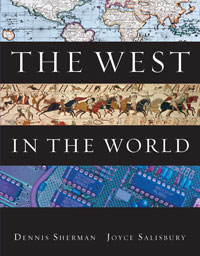1 A) mounting his soldiers on war horses. B) only accepting committed citizen-soldiers. C) arming his soldiers with longer pikes. D) arming his soldiers with muskets. 2 A) gold and silver to finance his campaigns. B) peasants he could recruit into his armies. C) trade. D) the Greek city-states. 3 A) his first wife. B) his new wife's uncle. C) Olympias. D) Pausanias. 4 A) Darius was soon assassinated by one of his own guards. B) Darius avoided all encounters with the Macedonian king. C) Darius died from wounds received during the battle at Gaugamela. D) Alexander was assassinated by one of his own guards. 5 A) enslaved conquered peoples. B) paid Greek citizens salaries to work as soldiers. C) married his soldiers to conquered women so that their children could work as soldiers. D) accepted Persian soldiers and chose 30,000 Asian boys for military training. 6 A) Alexander's corpse B) new weapons and fighting techniques C) intermarriage D) Macedonian resentment 7 A) maintained a navy. B) calculated the approach of ships with geometry. C) built a lighthouse. D) limited the amount of trade. 8 A) patronage of the arts and learning. B) land grants. C) monetary compensation. D) positions within the government. 9 A) greater economic equality. B) that slaves and immigrants were granted citizenship. C) that citizens also participated in wars as soldiers. D) greater democracy. 10 A) Alexandria. B) Sparta. C) the Nile valley. D) Pergamum. 11 A) slave mercenaries B) copper C) olive oil and wine D) war elephants 12 A) half B) 90 percent C) one-third D) 10 percent 13 A) merely imitated the Greek city-states. B) burdened local peasants with extra taxes. C) contributed to the decreasing freedoms for women. D) managed to control problems of sanitation and safety. 14 A) promote Greek culture and ideals. B) break with the Greek past and formulate new cultural ideals. C) preserve local cultures. D) solve social problems like poor sanitation. 15 A) glorifying war. B) striving to portray perfection. C) portraying daily life. D) focusing on divine themes. 16 A) lost Palestine to the Antigonids. B) took Palestine from the Ptolemies. C) enslaved the Jews in Palestine. D) prohibited the Jews from participating in Hellenistic culture. 17 A) served as a base for conquests of neighboring states. B) was promptly taken by the Ptolemies. C) was promptly taken by the Seleucids. D) forced the Jews to tolerate Gentiles. 18 A) confined and submissive. B) inferior to men. C) resourceful and outspoken. D) threatening and defiant. 19 A) show his rejection of material goods. B) highlight the disparity between the wealthy and the poor. C) emphasize the necessity of clean living. D) embarrass Alexander the Great and his excessive riches. 20 A) the value of participation in public affairs B) the need to renounce all material goods C) self-control and personal tranquility D) tolerance for some material wealth 21 A) decline in democracy in Hellenistic cities. B) excess of democracy in Hellenistic cities. C) international character of Hellenistic cities. D) impersonal nature of Hellenistic cities. 22 A) Romans. B) Macedonians. C) Persians. D) Sicilians. 23 A) the Persian Empire B) Egypt C) India D) the Phoenician coast 24 A) the Ptolemies B) the Antigonids C) the Seleucids D) the Persians 25 A) command economies. B) the reestablishment of Athens as the commercial capital of the eastern Mediterranean. C) increasing economic equality. D) a lack of luxury goods and novelties. 26 A) Euclid. B) Eratosthenes of Cyrene. C) Herophilus. D) Aristarchus of Samos.





